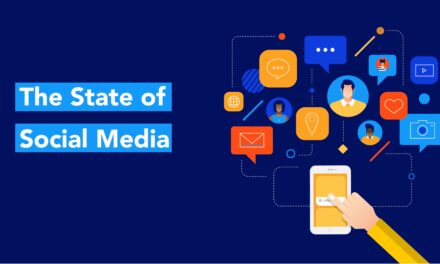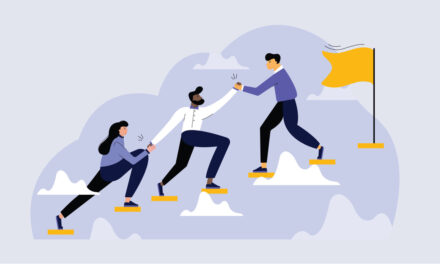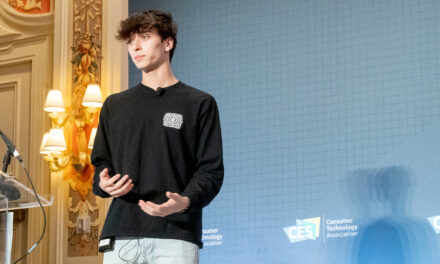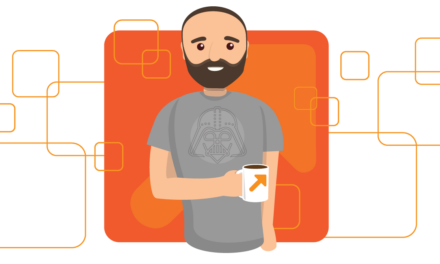Ah, the media. That much-maligned entity. That pillar of democracy. We’re dedicating the Spring issue of EContent to it, but one question we need to answer is, “What even is the media?” Is it The New York Times? Vogue? CNN? Facebook? Google? Netflix? YouTube? Tumblr? A podcast? All of the above? Something greater than the sums of these parts?
I suspect your answer to this question depends on where you live and, most importantly, how old you are. If it’s not on YouTube, Gen Z probably doesn’t know it exists. We live in a day when the likes of “Baby Shark” can go from an obscure song for kids on YouTube to a single climbing the Billboard charts to a Netflix show. If you’re retired, you may be blissfully ignorant about “Baby Shark.” Instead, you might spend a lot of time shaking your fist at cable news—which channel depends on which political doctrine you’ve subscribed to. You grew up on Walter Cronkite, but now Tucker Carlson is trying to trick you into believing he’s a legitimate news anchor.
For decades, people—but especially Americans—have been narrowing their views even as “the media” has become a bigger, more expansive, more powerful entity. It started with cable news. People abandoned the nightly news for opinion disguised as fact, becoming more and more steadfastly ensconced in their own echo chambers. The internet took that to new levels. Algorithms were designed not to give you the truth or even the best possible answer to your question—but the answer it thinks you’re looking for. Your social media feeds are carefully curated to show you only the things you’ve indicated—either explicitly or implicitly—that you want to see. Add to that the ease with which anyone (including governments) can use social media to target specific people with specific messages, and you’ve got a woefully uninformed public. Now, it’s not just Tucker Carlson trying to make a few quick bucks who we need to worry about. It’s actual government disinformation popping up in your Facebook feed. That’s not media. It certainly isn’t a free press. It’s propaganda, and it’s dangerous.
Forget, for a moment, the American example of an election gone awry. Let’s turn our attention to Myanmar instead, where military personnel posed on social media as pop stars and other famous figures disseminating a grotesque message that helped enable genocide. These propagandists said that Islam is a threat to Buddhism and made up fake stories of rapes committed by Muslim men against Buddhist women. In December 2017, The Guardian reported 6,700 Rohingya Muslims had been killed in a month—including 730 children. This is just a small fraction of the people dead and displaced as a result of the genocide, which has, in large part, been fueled by propaganda spread on social media. In comparison to the death of thousands of people, our election kerfuffle almost seems quaint.
It would be easy to say “the media” has gotten a bit too free. Deregulation has allowed media corporations to start buying multiple outlets in the same market. This makes it totally possible that a person might get his information from a newspaper, TV station, and radio station all owned by the same company—ensuring that he only hears one point of view. You would think that the internet would help mitigate this, but that doesn’t seem to be the case. Instead, those oh-so-effective algorithms—and the nonexistent barrier to entry—have made it worse.
All the while, we’re not really sure what to call Google and Facebook. Are they media companies? They say no, but they sure do distribute a lot of content and have an exorbitant amount of control over what people see (or don’t see). They’ve also usurped a lot of the ad dollars that once helped newspapers and magazines pay for quality journalism—the kind that truly informed people.
The media landscape is so varied; it’s hard to imagine that a one-size-fits-all approach to regulation can be relevant. But regulation is needed. Lives literally depend on Facebook figuring out how to police its network. For decades—even centuries—a free press was often enough (although, at times, it has let us down) to make sure the truth won out. But currently, there are intermediaries who need to be held to some kind of editorial standard. Otherwise, the clickbait and propaganda will continue to dominate, and the consequences are unfathomable.







